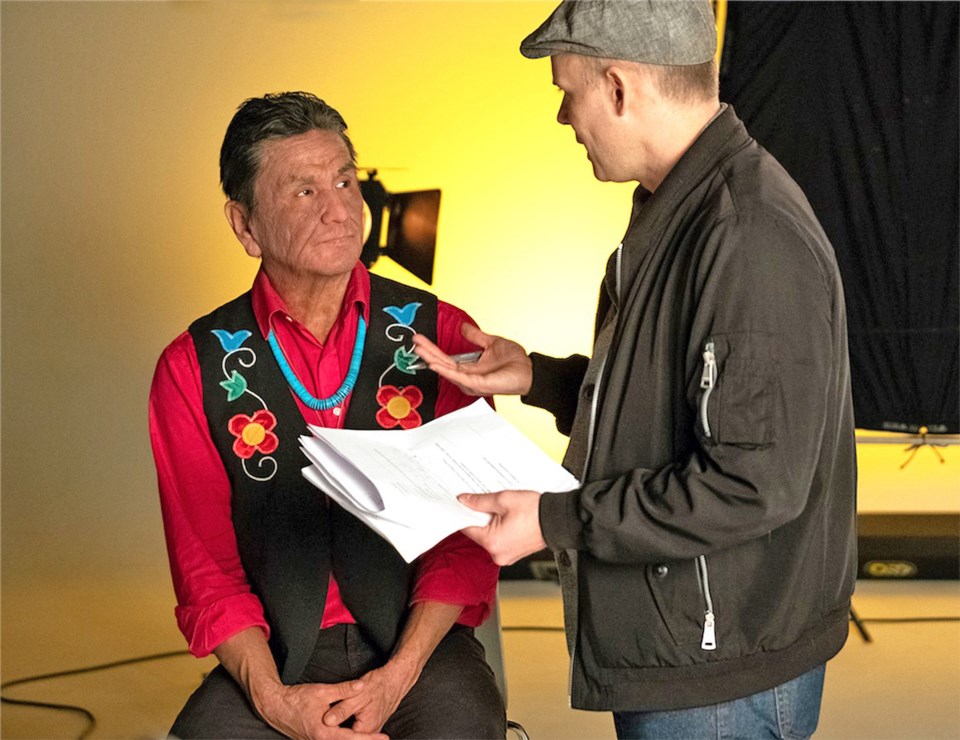Enid-Raye Adams’ dad was an addict for most of his adult life. And, like many people who love an addict, at a certain point Adams reached her own rock bottom with her dad’s addiction. She cut him out of her life.
“I thought it was the right decision, and it might have been for a time,” recalls the Vancouver-based actress and producer in a recent interview. “I didn’t realize how much I would regret the decision I made to cut him out of my life until the day after he died [in his sleep, of natural causes].”
That day after, Adams experienced what she describes now as a “moment of revelation: I realized instantly that I could have found the balance between my own wellness and staying connected to him, and I didn’t know until it was too late.”
This gut-punch of a revelation and the ensuing regret are the reasons why Adams stepped forward to write and produce We Can Help, a public service announcement that addresses mental health and addiction issues within the film and television industry.
Hollywood North might seem glamorous from the outside but it isn’t immune from mental health struggles and substance abuse. In the last year alone, the local community has been devastated by a spate of suicides, as well as overdoses related to the opioid crisis.
Which is why several film and television industry unions — including DGC BC, Teamsters 155, IATSE 891, ICG IATSE 669, UBCP/ACTRA, FSEAP and the BCCFU — banded together to form a working group.
“Many of our members were affected by mental illness-related issues, and the fentanyl issue was affecting so many people. So, rather than working individually as individual unions, we got together to find solutions and ways to help,” says Adams, who joined the working group in January after being elected to the UBCP/ACTRA board of directors last fall.
The multi-union working group is currently gearing up to launch a website. Call Time Mental Health’s tagline is “No call time has ever been more important,” a reference to film industry parlance for the time cast and crew are expected to arrive on set. “It’s not a password-protected site, so people can go there and they can find resources through their own union, and they’ll be some general resources as well,” she says.
Adams began writing We Can Help to spread the word about the website but what began as a 30-second promotional spot evolved into something infinitely more profound: a three-minute PSA in which makeup artists, directors, transport drivers, set decorators, actors, and writers speak about their own struggles with anxiety, drug addiction, depression, and suicide ideation.
“There are no performances here,” says Adams, after describing the PSA as a love letter from and to the community. “These are our colleagues generously and graciously putting their faces on camera to talk about things that are scary to talk about. The end product is a mix of scripted dialogue and organic moments, but every single word in that piece is someone’s truth.”
The PSA features what Adams describes as “a mix of familiar faces that people will recognize from their work on television, and faces that people won’t recognize, who work with us behind the scenes. It’s such a gorgeous mix of humanity from across all facets of our industry.”
It was directed by celebrated filmmaker Jason Bourque (Drone) and produced by Robyn Wiener (Black Fly).
“I have carried around in me a mountain of regret because I didn’t pick up the phone one more time to say, ‘I love you, Dad,’ and so for me, this PSA is my picking up the phone and saying, ‘I love you, Dad,’” Adams says.
We Can Help and the Call Time Mental Health web site are scheduled to launch next week. Follow @UBCP_ACTRA and @enidrayeadams for updates.



